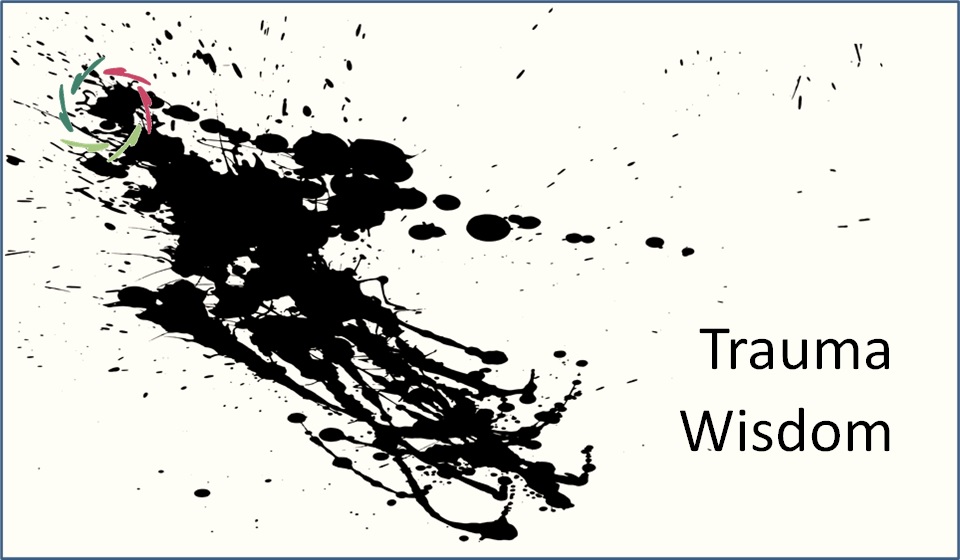Trauma Wisdom

Every trauma carries wisdom. It is like a medal of honor, challenging as it may be to appreciate the trauma in any way.
With ‘trauma,’ I denote in this text the actual happening as well as the living memory of it.
Trauma is (not) a part of you
In one way, trauma is a part of you. You should not cut it out just like that. Trying to do so, you can cut into yourself and provoke more trauma. Thus, people frequently get stuck in a post-traumatic groove. [see: “PTSD: a groovy kind of stress”]
In another way, trauma is not a part of you in the sense that you could not get beyond. You can get beyond, not by cutting but inviting/growing in a sensible way, which is not at all straightforward. [see: “Freedom + Direction = Invitation“]
Compassionate ways
Openness to the wisdom that trauma can bring is vital in both Compassionate ways:
- It relieves the suffering that could otherwise become a continual trauma. [see: “Respecting Bad Memories”]
- It is an invitation to mental growth. [see: “From Grief to Growth”]
Wisdom of trauma shows how these go together:
- Without post-traumatic mental growth, there is no durable relief of the suffering from trauma. One needs to give it its proper place that can only be found through a growth process. [see: “Hurt”]
- An in-depth focus on (relief of) suffering brings to the surface the deeper underlying meanings asking for attention, if necessary through even more suffering. [see: “There is Soul in Suffering”]
To get to the wisdom of trauma, one needs to listen deeply.
[see: “Deep Listening“]
One needs to be careful with this. It may be better to listen – Listen – with the support of someone trusted and who is professional.
Do I think of an AURELIS coach? [see: “Growing towards AURELIS Coach”]
Distance
As a general principle in Listening, it’s crucial to find the ‘right distance.’ This is certainly the case for trauma:
- Too far from the traumatized mental patterns, one cannot get their subtleties, while it is precisely in these that may lie their most important wisdom for the Listener.
- Too close, one may get overwhelmed and into fight or flight. This is traumatizing and inefficient. It may profoundly drain one’s energy. [see: “Is Burnout a Kind of Posttraumatic Stress?”]
The correct distance is the one where you can remain relaxed and open while feeling that the trauma can ‘speak to you.’
Here, you start communicating.
This is, as a matter of fact, the thing of importance in it all. Not the running away, nor the diving into, but the communication ― as spontaneously as possible but ready when it comes. A meditative mindset is useful to this end. [see: ” ‘Being Ready’ in Meditation“]
More than ever, with a daily overload of information and little time to digest it, this isn’t easy for many people. Some formal meditation practice may help.
And the wisdom is…
very personal.
Also, it’s essential to see it as very personal, not trying to pin it down to what it is supposed to be. It can be an insight, a feeling, an image, a motivation, a vague feeling that ‘something happened.’
Trying to control it and take hold of it may be the best way to avoid true wisdom ever appearing. One may become frustrated and relinquish the effort.
So, is it ‘your wisdom’?
It certainly is. That’s one more reason to handle whatever comes with deep respect, also if it’s subtle. [see: “What is Subtlety?“]
Let me end by validating this for leadership, in which it is known that a ‘second birth’ through traumatic experiences may build a true leader. [see: “From Fear of Failure to Failure as Part of Success”]


